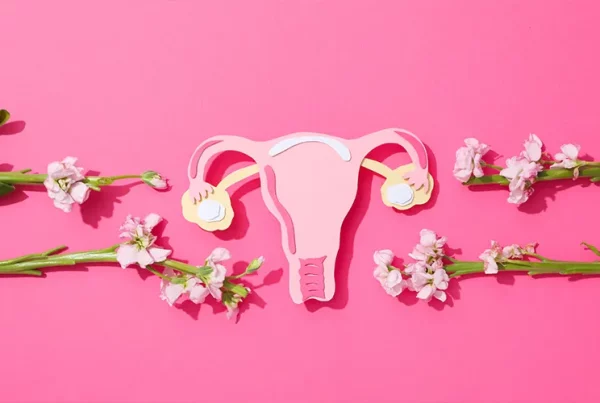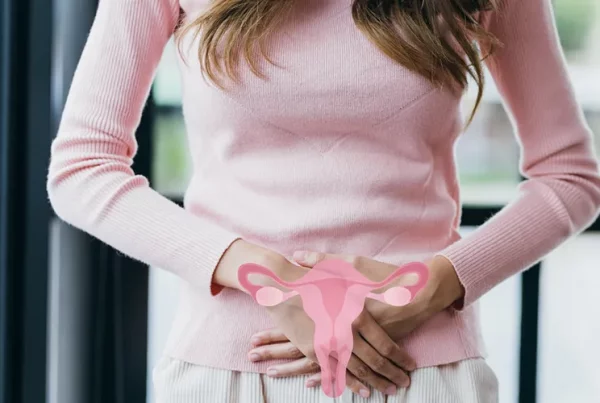
The road to parenthood can be joyful and exciting, but occasionally, there might be bumps in your journey. Trying to conceive can feel like a natural next step in building a life together, and facing infertility can be a truly heartbreaking experience. Studies have shown that 10% to 15% of couples are impacted by infertility.
Fortunately, there are assisted reproductive technologies that can help you achieve your dream of becoming a parent. This guide will explore two common options: Intrauterine Insemination (IUI) vs. In-Vitro Fertilisation (IVF). We’ll break down the key comparisons and considerations so that you can choose the most suitable path for you.
Understanding IUI and IVF
Intrauterine Insemination (IUI) is a minimally invasive procedure where the best quality sperm that has been prepared and selected in a laboratory is placed directly inside the uterus during a woman’s fertile window. This gives the sperm a head start, increasing the chances of natural fertilisation. The treatment can be a good choice for couples who are experiencing mild male factor infertility or those using donor sperm to build their family.
In-Vitro Fertilisation (IVF) is a more complex process. Here, medications are used to stimulate the ovaries to produce multiple mature eggs. These eggs are then retrieved, fertilised with sperm in a laboratory setting, and allowed to develop into embryos. After a few days, one or more healthy embryos are implanted back into the woman’s uterus for potential pregnancy. IVF offers a higher success rate compared to IUI and can be a valuable option for couples facing issues like severe male or female infertility, blocked fallopian tubes, or those who need genetic testing of embryos.
The Case for IUI
Many couples facing unexplained infertility or ovulation issues often begin their fertility treatments with IUI. This is because IUI is less invasive and is generally more affordable compared to IVF. It can also be a good choice when there are challenges like sexual dysfunction or if you and your partner have busy work or travel schedules that make it difficult to have intercourse during your ovulation window. IUI has a success rate of between 10% to 12%, which can increase up to 20% with fertility medication.
It’s important to take note that while the medications increase the chances of pregnancy, it also raises the possibility of having twins or multiples. Although this might be wonderful news for some families, you need to be aware of the potential risks associated with carrying more than one baby. We recommend discussing these risks with your doctor to make an informed decision.
The Case for IVF
IUI is a wonderful option for many couples, but it may not be the right solution for everyone. Here are some situations where IVF could be more suitable:
- * Previous unsuccessful IUI cycles: If you’ve undergone several IUI cycles (typically 3-6) without success, your doctor might recommend IVF for a higher chance of pregnancy.
- Severe male infertility: When sperm count or motility is significantly low, the treatment allows for the use of specialised techniques like Intracytoplasmic Sperm Injection (ICSI) to directly inject a single healthy sperm into the egg for fertilisation.
- Blocked fallopian tubes: Blocked fallopian tubes prevent the egg from meeting the sperm for natural fertilisation. IVF bypasses this obstacle by fertilising the egg outside the body.
- Genetic concerns: If there’s a risk of passing on a genetic condition to a child, IVF allows for pre-implantation genetic diagnosis (PGD). This screens embryos for specific genetic disorders before implantation.
IVF has a higher success rate compared to IUI, ranging from 40% to 50%. However, it’s important to remember that age can play a role in these numbers. Your doctor can discuss your individual situation and provide more specific information.

Making the Right Choice
Choosing between IUI and IVF is a deeply personal choice, and there is no one correct answer. The appropriate step forward will depend on your individual circumstances. Consulting a qualified gynaecologist or fertility specialist is crucial. They can provide a supportive and understanding environment where you can discuss your age, overall health, the cause of infertility, and your personal preferences. Together, you can explore all your options and choose the treatment with the highest chance of success for you and your partner on the road to becoming parents.
If you’re deciding on assisted reproductive technologies, know that you’re not alone. Many couples in Singapore have successfully navigated this path. By understanding the differences between IUI and IVF and consulting with a qualified healthcare professional, you can make an informed decision about the treatment that suits your needs and helps you achieve your dream of growing your family.
At SMG Women’s Health, we have a team of gynaecologists and pregnancy doctors who understand the physical and emotional challenges of infertility. We offer a range of fertility treatments, including IUI and IVF, and are committed to providing compassionate and personalised care throughout your journey. The transition to parenthood can be complex, and we understand. Our team is here to support you every step of the way.
Schedule a consultation today to discuss your fertility concerns and explore the treatment options that might be right for you.



